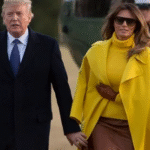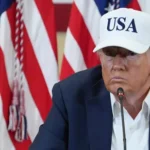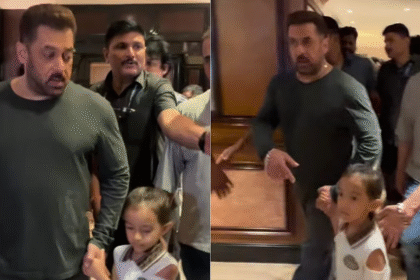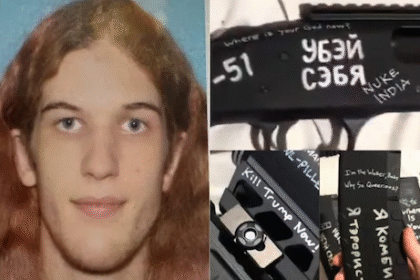Rahul Gandhi Pleads Not Guilty in ₹100 Cr Defamation Case Over Savarkar Remark – Court Hearing Held in Pune
Rahul Gandhi pleads not guilty in a ₹100 crore defamation case over his remarks on Savarkar. The Congress leader appeared in a Pune court as the legal battle intensifies
On July 11, 2025, Congress leader and Leader of Opposition in Lok Sabha Rahul Gandhi formally pleaded not guilty in a high-stakes defamation case worth ₹100 crore related to his comments on Vinayak Damodar Savarkar. The plea was entered indirectly, via his counsel, in a Pune special magistrate court. This legal action marks another chapter in a months-long political and judicial confrontation.

The hearings took place before Special Magistrate Amol Shinde, who allowed Gandhi’s lawyer, Milind Pawar, to record his plea, citing a 2021 Supreme Court ruling permitting accused individuals to plead not guilty through their advocate
Pawar confirmed that Gandhi, who did not appear personally or via video, had authorized the plea. The court read out the charges under Section 500 (defamation) of the Indian Penal Code, to which Gandhi responded via his counsel: “Not guilty.
A provisional next trial date was set for July 29, starting the formal process.
The case stems from comments Gandhi made in a March 2023 speech in London, where he alleged that Savarkar—who coined ‘Hindutva’—mentioned in his writings that he and his associates once beat up a Muslim and “felt delighted.”
Satyaki Savarkar, Vinayak’s grandnephew, filed the ₹100 crore defamation suit in Pune, arguing that these remarks were false, malicious, and damaging to his great-uncle’s reputation.
This is a criminal defamation case under IPC Section 500, which can attract up to two years’ imprisonment, a fine, or both.
In February 2025, Milind Pawar petitioned the court for permanently exempting Gandhi from appearing in person, citing his Z+ security status, ongoing parliamentary duties, and safety threats at Pune court, especially given association with Savarkar’s lineage and Nathuram Godse. The court granted this exemption.
Gandhi’s team also sought conversion from a summary trial to a summons trial, which allows more comprehensive evidence review and cross-examination. In April 2025, Magistrate Shinde agreed, citing complex historical evidence requiring a detailed hearing.
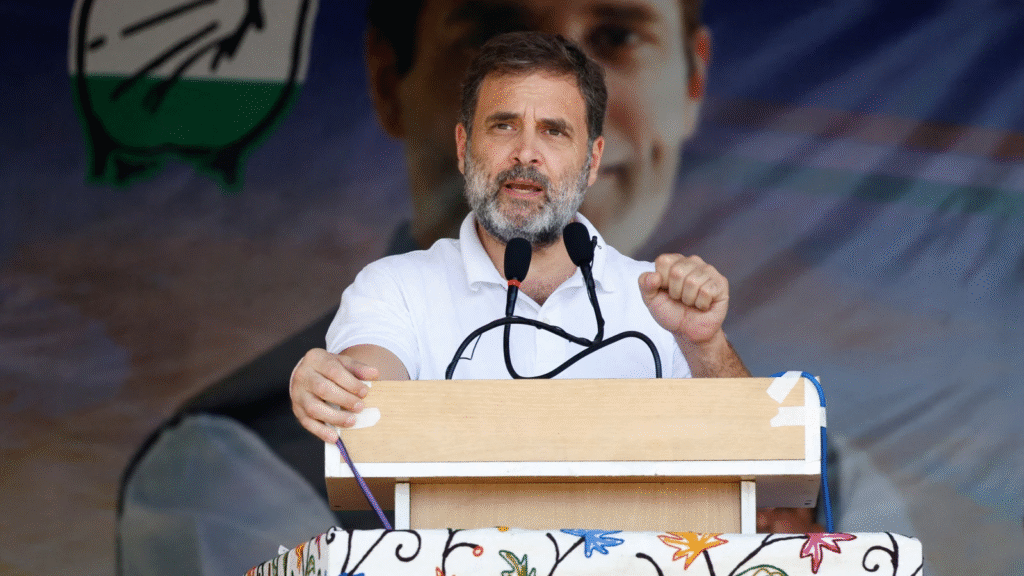
Gandhi was granted bail on a ₹25,000 surety and exempted from personal appearances—a bail cancellation plea by Satyaki was rejected in June due to insufficient grounds.
A separate plea by Satyaki to cancel Gandhi’s bail bond was dismissed, with the court noting Satyaki had yet to file the proper revision request under CrPC Section 439(2).
The not guilty plea was entered on July 11, 2025, and the trial is officially scheduled to begin on July 29, 2025. The first step: recording evidence and witness arguments.
Gandhi’s legal team continues seeking permission to submit historical documents, and there are ongoing submissions related to the Supreme Court-exempted personal appearance and fairness of trial procedures.
Notably, the court recently rejected an attempt to compel Gandhi to produce the book he cited during his speech, noting the legal protections of Article 20(3) (right against self-incrimination).
The defamation case is more than a legal issue—it reflects deeper ideological battles over the legacy of Savarkar, a figure central to modern Hindu nationalism. The trial involves contentious claims about historical facts.
Gandhi’s stance: Savarkar reportedly acknowledged violent acts against a Muslim in his writings, which Gandhi cited. His critics refute it. Meanwhile, Gandhi argues that facts deserve to be debated in court.
This isn’t Gandhi’s first defamation case. In 2019, he faced legal action over a “Modi sweets” remark, which led to a brief conviction and disqualification from Parliament—later stayed by the Supreme Court.
The ongoing Savarkar case is significant: it tests political speech boundaries, Freedom of Expression, and India’s judicial approach to historical reputations during elections.
Legal experts note: defamation cases over historical claims necessitate thorough documentation and cross-examination, reinforcing Gandhi’s push for a summons trial.
The court’s refusal to compel Gandhi to produce his source materials strengthens defense protections, highlighting fair trial standards.
Supporters argue the case threatens free speech; detractors say it defends Savarkar’s honor.
Some opposition leaders believe it’s part of orchestrated political targeting of Rahul Gandhi.
Analysts say the court’s openness to hearing detailed evidence signals judiciary’s commitment to impartiality amid ideological battles.
Read Also : Donald & Melania Trump’s Intimate Moment Goes Viral Ahead of Texas Visit – Watch the Exclusive Clip Now



